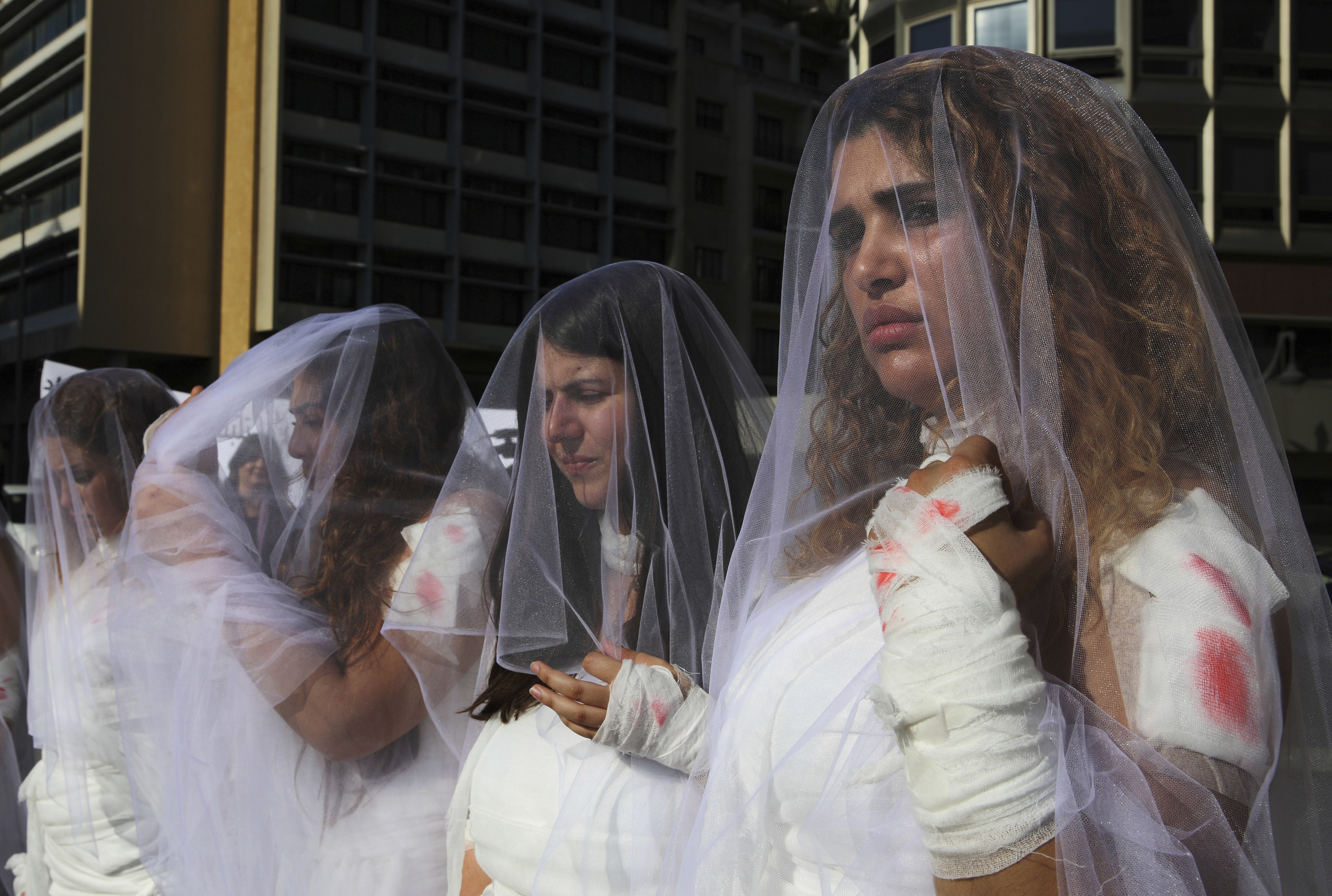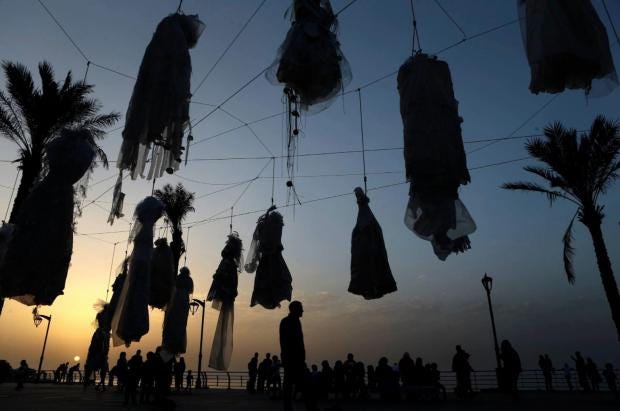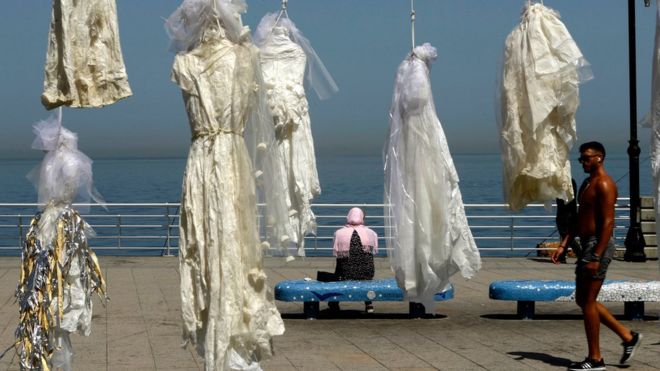Disgraced, Dishonoured, Raped and Victimized
 |
Lebanese Women Dressed in Bloody Bridal Gowns Protest Rape Law The law allows rapists to avoid prosecution if they marry their victims. (AP Photo/Bilal Hussein) |
"My sister didn't like the deal, but I assured to her, it will be temporary."
"He was beating her continuously."
"Our words won't have much impact."
Ahmad Latifa, Syrian Sunni refugee, Lebanon
 |
| Thirty-one dresses were strung up on the Lebanese capital’s famous seafront to draw attention to Article 522 of the law addressing rape, assault and forced marriage Abaad |
Ahmad, his sister Basma Mohamad Latifa and their family sought refuge in Lebanon, fleeing the carnage that Syrian President Bashar al-Assad's Shiite regime wrought in Syria, threatening, destroying, slaughtering his protesting Sunni population. They lived as refugees in a Shiite village in Lebanon, attempting to make themselves inconspicuous. One of the villagers had taken to visiting the family frequently, and months on, raped Basma.
The family was struck with shame and anger, but villagers advised them to negotiate a marriage contract with the woman's rapist. Her brother, advising her to simply submit to reality, Basma, acknowledging that she was no longer a virgin and as such no longer would be considered marriageable to any self-respecting Muslim man of faith, assented and married her rapist.
The marriage lasted for three years. Three years is precisely what Lebanese law specifies must elapse for a rapist not to be charged with the crime of rape, after doing the 'right thing' and marrying the woman -- or girl, as the reality often reflects -- that he raped. After Basma Latifa divorced her tormentor he wrote a threat on the side of the house where the family was living.
The following night, Basma's former husband entered the house and shot her dead. Criminal charges have been brought against him, including that of murder.
| Women protest Lebanese law absolving rapists who marry victims.. (photo credit:screenshot) |
She was 22 years old when she died. The man who raped and then married her beat her continuously throughout the three years of their marriage, until she finally left him. He was more than twice her age. Her family had persuaded her to marry her rapist in exchange for their not filing charges against him. When he entered the house to kill Basma, he shot her nine times to make certain she would not survive his attack.
There is a campaign in Lebanon by women protesting the law allowing rapists to evade justice through prosecution, as long as they marry the girl or woman they have raped. Billboards appear in various places, of a woman in a bloodstained and torn bridal gown. A women's rights group hung bloodied wedding gowns on prominent display along the city's seaside promenade.
Women are finally asserting themselves in an aggressive campaign to protest the patriarchal traditions linking honour to a woman's chastity. The law persuading rapists to marry their victims to avoid prosecution shield the woman's family from "scandal", but do nothing to protect the victim of the crime. She is doubly victimized, first by the initial rape and the shame and humiliation, pain and fear that accompanies it, then again, forced by custom and tradition to be married to the rapist.
Morocco was the first country, in 2014, to repeal the provision allowing convicted rapists by marrying their victims to evade punishment. In Jordan parliament just voted to repeal the law, and in Lebanon parliamentary votes are expected to take place this summer in the wake of recommendations by government committees to repeal such exemptions in the tardy realization that they reflect a savage, misogynist lack of civilization.
 |
| Domestic violence: A group of "guerrilla feminists" in China marched up a Beijing street wearing wedding dresses spattered with red paint to highlight the issue, little debated in the country BBC |
But while the law may be successfully repealed, the traditions and customs that have long reflected their societies where family shame and blighted honour is inextricably linked to a woman's virginity, and her value as a human being, much less a future wife plummets as a result of rape, will be much more difficult to eradicate. As will be 'honour killings' where family members set out to murder a daughter, a sister, a niece, for behaviour unbecoming traditional notions of feminine modesty.
In 2012, a dreadful occurrence took place in Morocco when a 16-year-old girl swallowed rat poison when she was forced to marry the man who had raped her. It was public reaction to that event that convinced the government it was time to amend the country's rape law. In Bahrain, though its parliament voted to repeal a similar last year, the executive branch claimed it should be revoked in rape cases involving multiple perpetrators exclusively.
 |
| AFP/Getty |
Labels: Honour Killings, Jordan, Lebanon, Middle East, Morocco, Palestinian Territories, Rape, Shield laws

<< Home